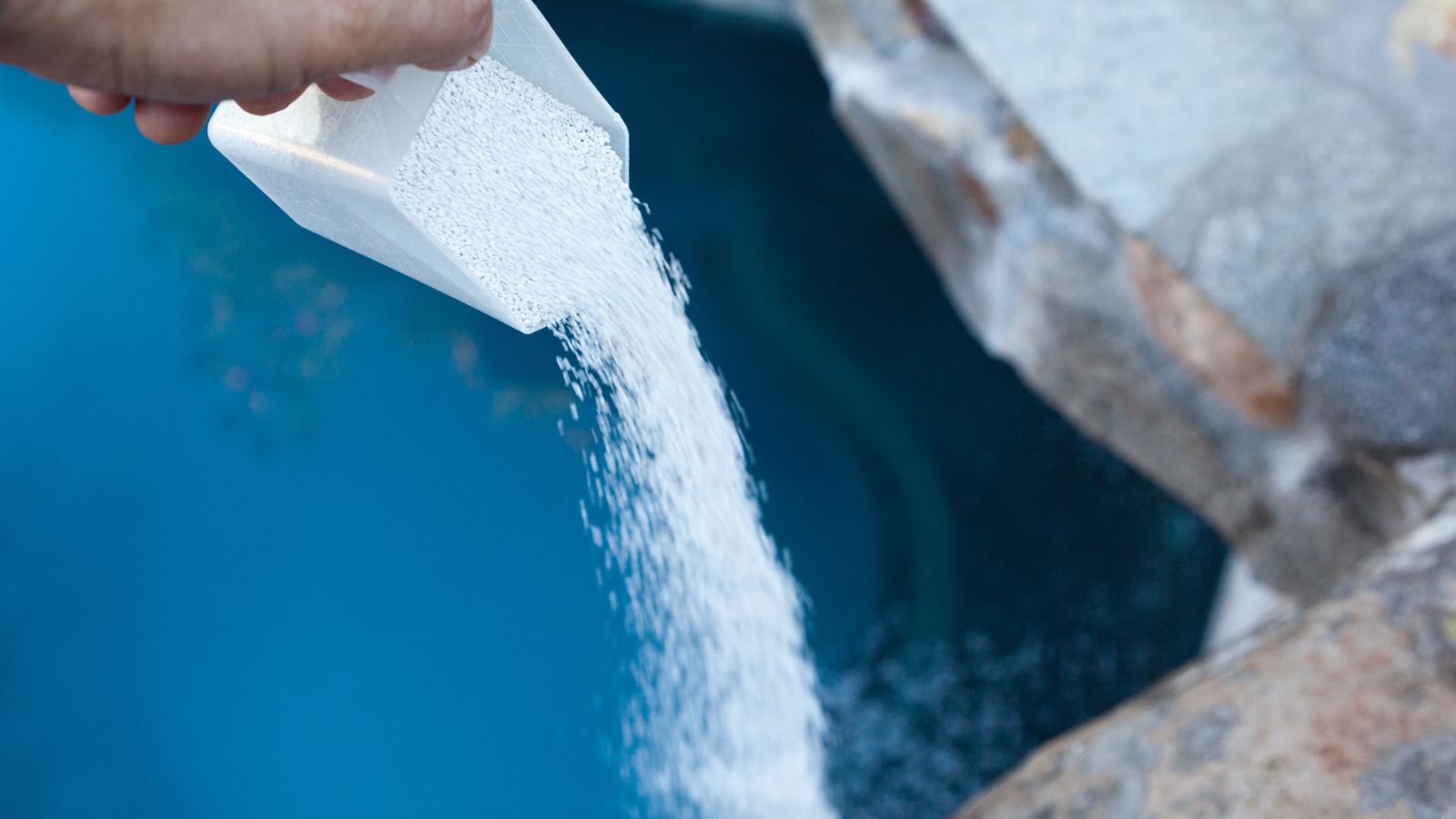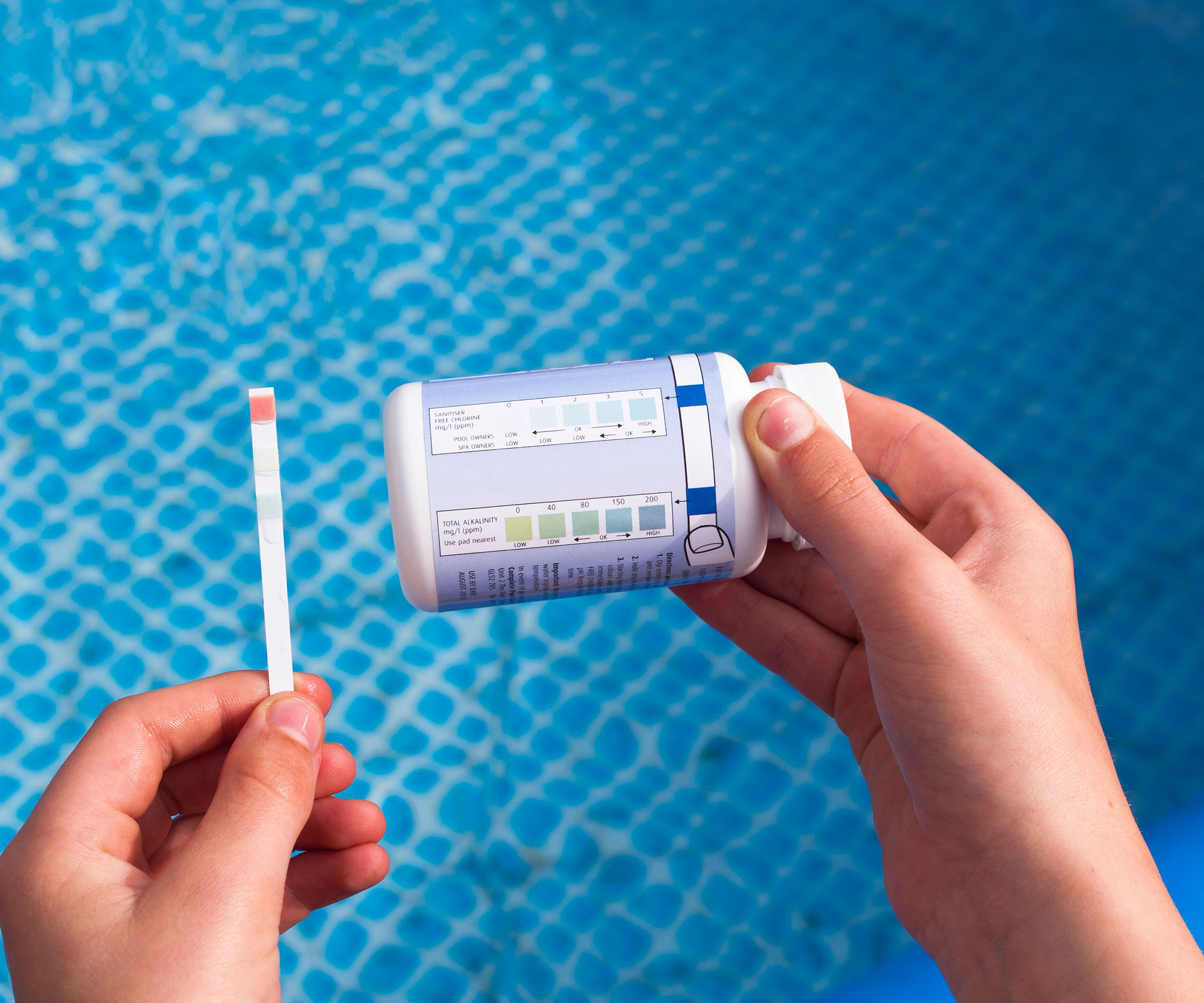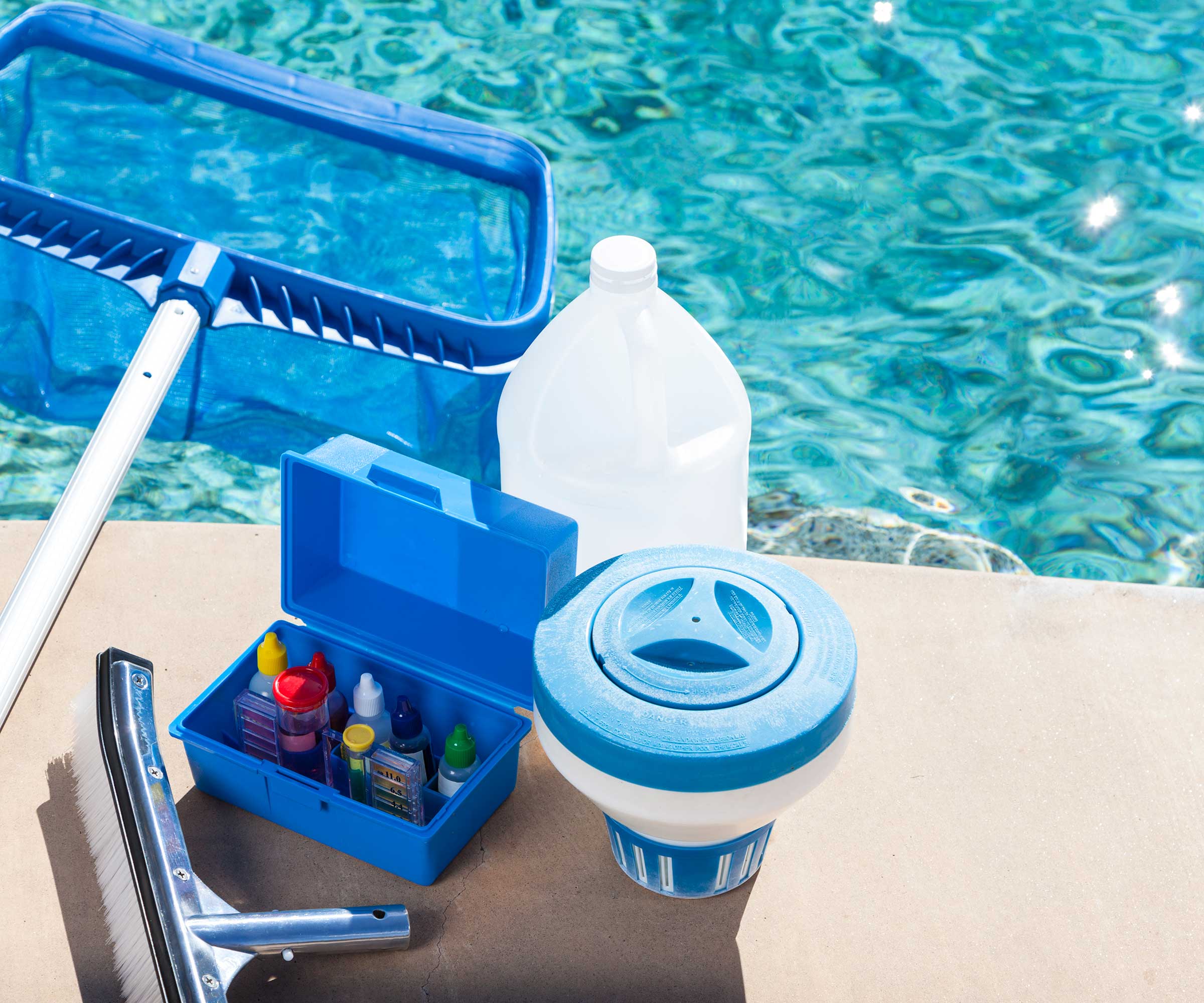
Rain can make a difference to the water in your pool, affecting its chemistry and sweeping contaminants into the water. As a pool owner, you’ll know that balanced chemistry and removal of contaminants are important, but you might be wondering if this means you need to shock the pool after every occasion on which it rains.
To keep any pool sanitary, enjoyable to swim in, and an appealing feature of your yard, there are tasks you must carry out, and these including shocking the water regularly. But there are times when extra shock treatment is required, and that includes when it rains.
Here, we’ve explained why a pool can need to be shocked after rainfall and therefore when to do it so you can look after yours with confidence.
Shocking a pool after it rains: what you need to know
Knowing how to shock a pool is a must for every pool owner, and it’s also crucial to be sure about how often to shock a pool to keep the water hygienic and the pool itself the centerpiece of pool landscaping ideas.
But the pool shocking schedule sometimes needs to be supplemented – and one of the occasions on which it might need it is after it rains. ‘Rainwater alters the pool’s pH balance by introducing organic contaminants into the pool, such as dirt, debris, pollen, and algae spores,’ explains Hubert Miles, certified pool and spa inspector through NACHI.
Follow these guidelines to keep the pool a healthy and hygienic place to swim.
Shock the pool if rain is heavy
What might count when it comes to rain and pool shock is how much it’s rained. If we’re talking a one-off light shower, then the pool water should remain balanced. But if there have been a series of showers or a rainstorm, it’s a different case.
The reason? The water that’s been added to the pool can affect the pool chemistry. What’s more if it’s been windy, debris and dirt can have entered the water from the pool deck or pool area, contaminating it.
Rainwater can cause low chlorine levels as it dilutes the amount of existing chlorine in the pool. The sanitizer level can also be lowered by dealing with the contaminants in the water. And bear in mind that chlorine works best if the pool water is balanced, which it probably won’t be after lots of rain.
Always test the pool after rain
Before you add shock, though, you should test the water. This will let you know if lighter rainfall has had an effect and, whether the rain’s been light or heavy, it will allow you to adjust levels before adding the shock. Some pool retail stores offer in-store testing, or you can use a test kit.
‘Rainwater can alter the water’s pH, alkalinity, and chlorine levels,’ says Hubert Miles. ‘Testing the water allows you to assess its current chemical parameters accurately. Knowing the pool’s chemical balance allows you to determine how much shock is needed to restore the water’s clarity and sanitization. It helps prevent over-shocking or under-shocking, ensuring the pool remains safe and inviting for swimmers.’
Bear in mind that the total alkalinity range should typically be in the range 80 to 120 ppm (parts per million). As for pH, this should be 7.2 to 7.6. Adjust the pH level using a reducer or increaser as necessary.

Shock the pool in the evening after rain
It remains preferable to shock the pool in the evening following a heavy rainstorm rather than during the day.
‘Shocking the pool during the day when the sun is at its peak causes rapid chlorine degradation due to its UV rays,’ says Hubert Miles. ‘By shocking in the evening, you provide the chlorine time to work overnight, allowing it to circulate and sanitize the pool water effectively. Shocking in the evening minimizes the chances of immediate pool usage, as it is generally advised to avoid swimming shortly after shocking.’
After shocking, filter the water
After shocking, run the pump and filter for 12 to 24 hours to get rid of the dirt and debris as well as circulate the chlorine thoroughly.
If the water still doesn’t look good after this? You’ll need fixes for a pool that isn’t clear.

Post-shocking safety precautions
If you’re shocking the pool after it rains, you need to follow safety procedures just as you should any time you shock it. Be sure to wear protective gear when using pool shock: goggles and appropriate gloves are essential and you might prefer to wear a mask, too. Always follow the instructions on the pool shock carefully for safety, too.
As for using the pool again, always follow the rules on how soon you can swim in a pool after shocking it. You should test chlorine levels before letting anyone get into the water.
FAQs
Is it better to shock a pool before or after rain?
It is worth shocking the pool if a major rainstorm is expected as you know that it will add contaminants to the pool. But if you can’t, or the rain wasn’t forecast, it’s fine to shock the pool after it rains.
There are other precautions that are worth taking before heavy rain. Put away outdoor furniture or anything else in the yard that could get blown into the pool. Store away any pool accessories and tools, too. Shut off gas lines for safety as well, and turn off pool equipment at the breaker before the storm is due to hit.
Why is my pool green after heavy rain?
Algae can turn your pool green after heavy rain and just as on any other occasion on which they turn the water green, it’s important to tackle algae to prevent bacteria growth, slippery surfaces, reduced visibility, and water that looks unpleasant to boot.
To kill algae, shock the water or use an algaecide, then get the dead algae out of the pool.
Bear in mind that you may need to drain water from your pool after rain. ‘Excessive rainfall can cause the water level to rise beyond the pool’s capacity, leading to potential overflow and damage to surrounding areas,’ explains Hubert Miles. ‘Heavy rainfall can dilute the pool’s chemical balance, making restoring proper pH, alkalinity, and chlorine hard. If the chemical balance cannot be restored through balancing chemicals, draining a portion of the water and refilling it with fresh water allows for better control over the pool’s chemistry.’







